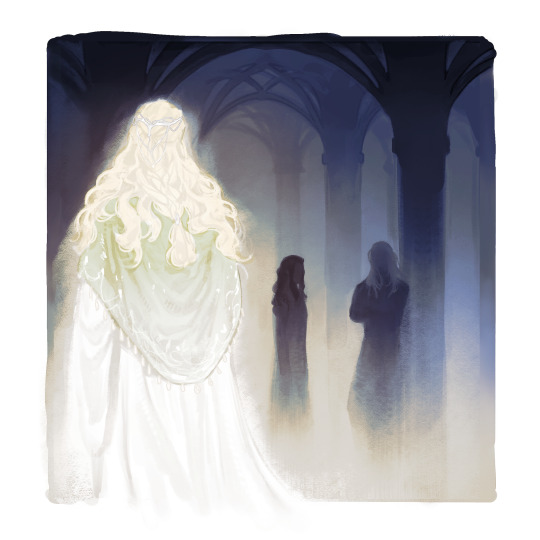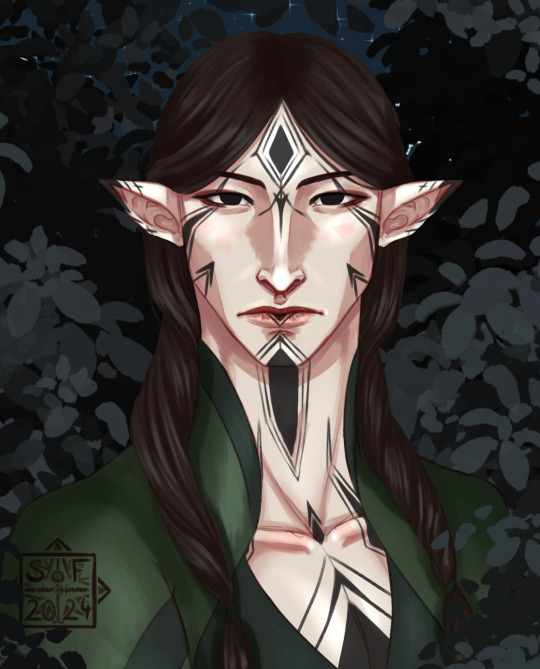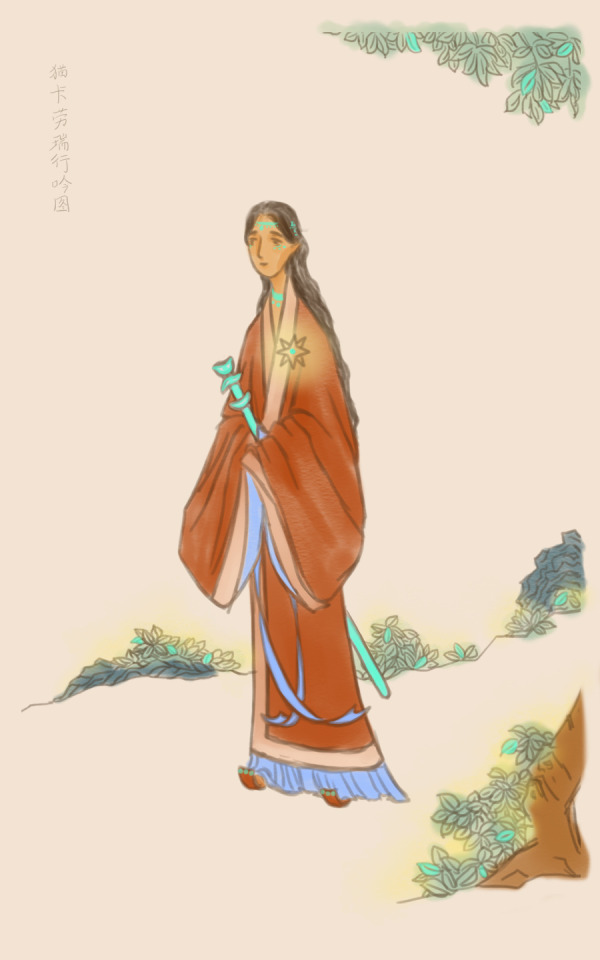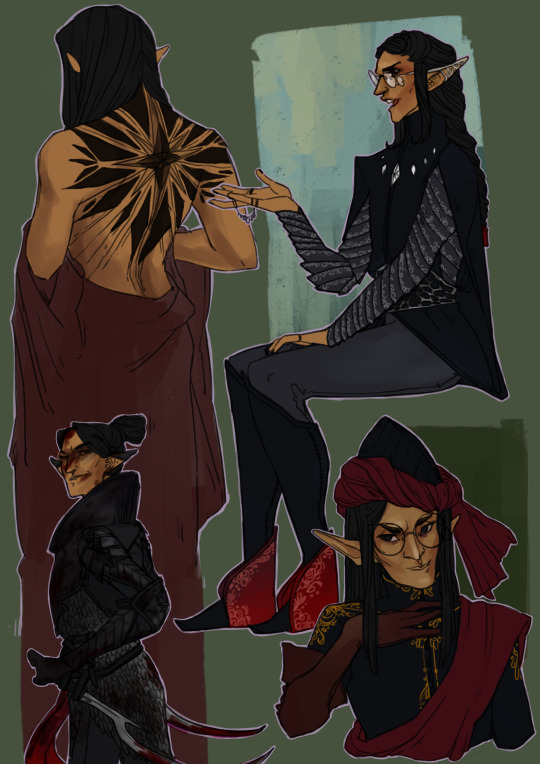Text
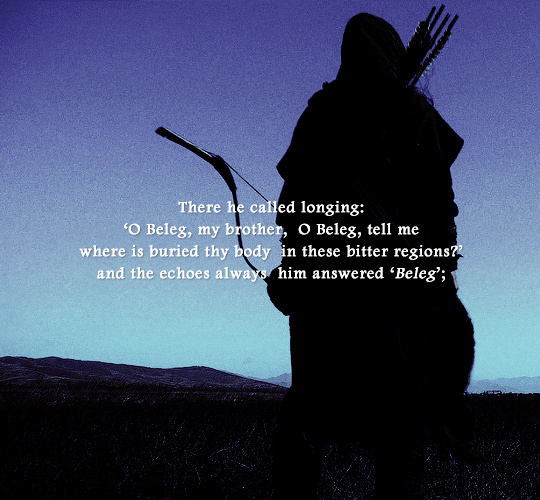
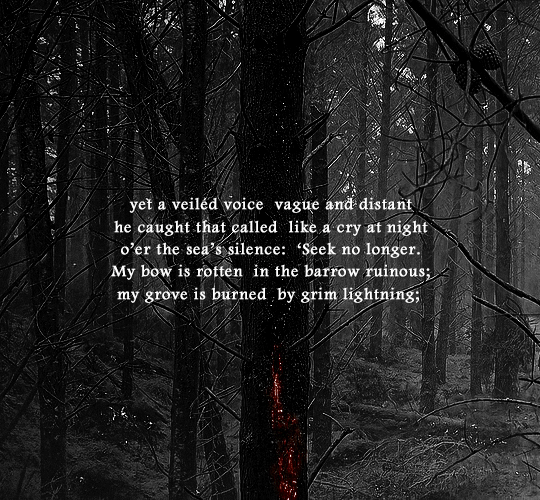
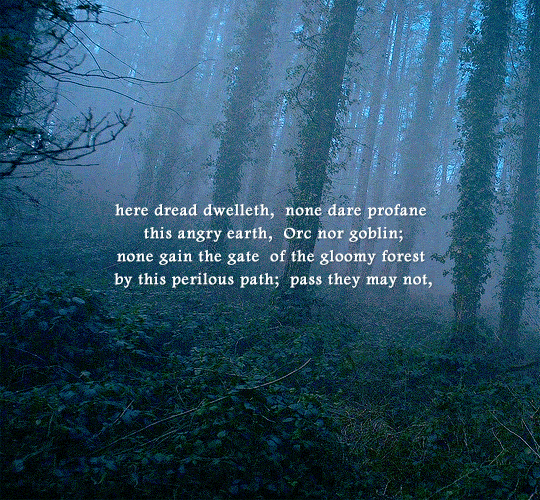
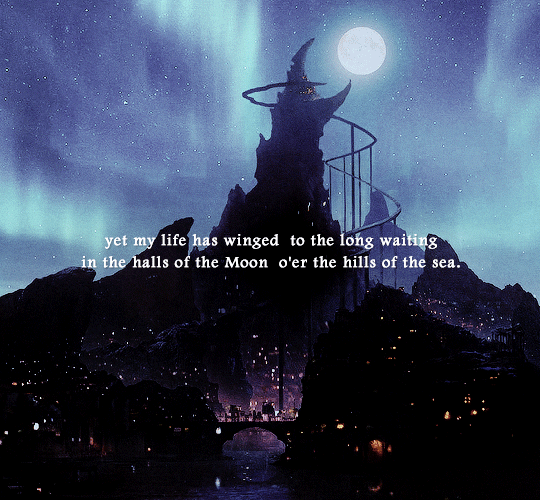
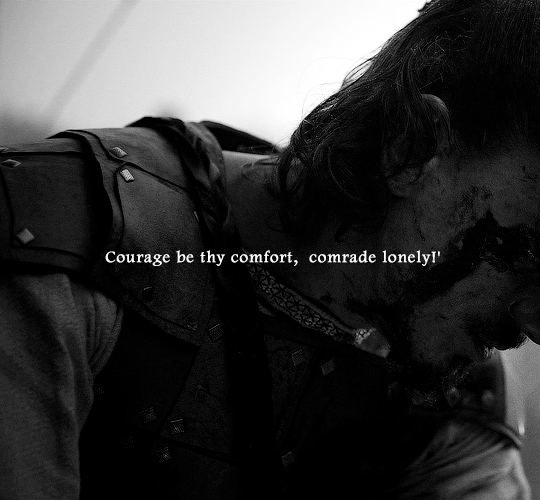
@dorcuartholweek day 1: farewells
'Now fare well, Beleg, to feasting long
neath Tengwethil in the timeless halls
where drink the Gods, neath domes golden
o'er the sea shining.'
— THE LAY OF THE CHILDREN OF HÚRIN: III. FAILIVRIN
457 notes
·
View notes
Text
we still get immediately shoved out of our immersion in tv shows or films when The Girl find a dead body and immediately shrieks - we just don't find it realistic because we're pretty confident most people would gasp rather than shriek (i.e. sharp inhale rather than sharp exhale) and it also feels unnecessarily (and predictably) misogynistic too, as men encountering corpses almost never do the same on screen
also of course please do tell us if you've actually encountered a corpse unexpectedly, because tumblr is absolutely a place where some people have done this thing and we love a good anecdote
suddenly imagining "burst into song" as a potential response
#yeah no I'd scream#I never once before reading this thought of that as a gendered reaction though#I'm just veeeery jumpy#but I also never watch horror (see above) so havent had opportunity to observe this phenomenon
7K notes
·
View notes
Text
#sooo after reading the tags I very unexpectedly chose fingon/galadriel#I'm compelled#but fingon/hurin is so good
65 notes
·
View notes
Text
Sindarin Linguist Opinions Please
That's right. Someone is actually asking.
I'm trying to 1:1 translate three mythological names from Medieval Welsh into Sindarin. I am not well-versed in either language. I want to be double-checked, I want opinions, I want kooky ideas.
Fortunately (?) modern Welsh won't help you. These are three names from the Mabinogion. The names are Bleidwn, Hydwn, and Hychdwn. What do they mean? Well, the main nouns of the names come from wolf, deer, and pig respectively (they appear to be plural but let's not worry about that for now). What's the other part? Uh.
Let me let Will Parker talk for me:
The precise significance of the -wn. It is similar though not identical to a common Welsh diminuitive -an, and likewise comes close in sound to the suffix -wr (< gŵr 'man'): this would have perhaps implied a meaning close to 'Little Wolf Man', 'Little Pig Man' etc. Katherine Millersdaughter (2002, pp.301-302) points out that -wn is also identical to the standard first-person plural ending, giving the meaning 'we-are-deering', 'we-are-swining', 'we-are-wolving' etc. The same ending is also used for the first person singular past-tense, rendering the further meaning: 'I-deered', 'I-swined', 'I wolved'.
I like the last translations for my own reasons, and have been trying to make names that are, essentially, I-did deer, I-did pig, and I-did wolf.
That is very cool, because from what I've read so far, Sindarian had the same verb for 'do' and 'make', which is car-, which means that if I use that one I have the extra cool double meaning of I-made in all of those words. According to every website I've looked at so far, the past tense of 'car--' in singular is 'agor.' Meaning, 'agor' should mean 'I did' and 'I made.'
Deer is easy. 'Aras.' We are agreed. Wolf is slightly harder. I see both 'draug' and 'garaf' floating around, both seem to have upsides and downsides, I'm willing to use either. Tolkien did not seem to care for pig, so the closest thing I have got is 'hunc', from an early source and, you know what, unless someone pulls something better out of their pocket I'll roll with it. If you do have a sindarin word for pig, hog, boar, any porcine creature, hit me with it.
Now, I don't really know Sindarin grammar. I really don't. So in my tooling documents I have these word parts smashed together as Agoraras, Agorhunc, and Agordhraug (I slipped that 'dh' into the last one because it felt right in my soul but can give it up if it's an insult to the language). They're a little clunky, but that fits into their kind of harsh naming situation. Perfectly aesthetic names do not matter here.
So uh. Which part of the name should come first? Should there be connective tissue between the parts? Do you have a cool and funky idea for how I could translate these names otherwise? Any other awesome words for me? Do you just want to talk about Sindarin? The door is open, my friend.
13 notes
·
View notes
Text
Throwback Thursday
summoned by the lovely @sallysavestheday. Here's a throwback to Elrond the poet, Elrond the besotted, Elrond who comes home, at last.
On this day, a day he had not dared dream in his long winter, Elrond finds himself in Celebrían’s home. She had not waited for him upon the docks of Tol Eressëa with Elwing, nor welcomed him with fresh bread and sweet water beside Idril.
He stands now in Celebrían’s small house, a green-roofed cabin between the trunks of ancient trees. All windows and doors are open wide as if inviting any beast of the wood to dwell as a guest here. There are few things but the house does not feel empty.
A neatly folded piece of paper sits on the small table in the only room. It is for him, Elrond knows.
Winters and summers
Will come and go but
You will come to me.
The world shall change
And the roads curve but
You will come to me.
None shall remember
The people we were but
You will come to me.
Tho Tilion descends
With Arien from the skies
You will come to me.
His hands shake by the time he reads the last verse. And when he looks up from the paper, she stands there watching him, renewed and more beautiful than in any of Elrond’s memories.
I have no poem for you, he wants to say but does not dare speak, afraid that he shall shatter this moment and never regain it again.
‘I knew you would come to me,’ his beloved says and spreads her arms wide.
Elrond lets his heart open and be slowly filled with wonder and delight as he steps forward to fall into Celebrían’s embrace. They do not need words for this.
For more Celrond poetry: filled with wonder and delight
@polutrope @elentarial @eilinelsghost if you'd like, give a snippet of something that's been standing on the shelves
23 notes
·
View notes
Text
And to be clear, in case it wasn’t obvious, I’m a feanorian fan, specifically a Maedhros fan, but it’s startling to me how quick a lot of his fans are to excuse his actions. They aren’t excusable. MAYBE Alqualonde can be attributed to to naïveté, but he knew what he was doing in doriath and in the sirions, “he was in despair” no shit! That’s the point! He lost hope and began directing his oath toward his kin instead of Morgoth, it’s tragic and awful. He does deeds of surpassing valor and downward spirals into deeds of horrific evil. I’ve said this before with almost every male character I’ve ever liked: if you’re going to like a character, LIKE THE CHARACTWR! Don’t change the character around to become a more acceptable or palatable character that bares no resemblance to the ACTUAL character. By the end of the silm, Maedhros is a monster. A tragic one? Yes. A sympathetic one? I think so. But he’s a monster, and he tormented Elwing and he is responsible for her brothers deaths and her fathers death and the deaths of those at Alqualonde, I don’t think you have to ignore that in order to like this character
#mmm interesting thoughts#I'm... somewhat surprisingly perhaps? not of the opinion that the narrator is wholly convinced m&m are villains#and that's where the reader sympathy arises#but to everyone in-universe? yes#meta#Maedhros
239 notes
·
View notes
Text
Fingon does not play often anymore. Rarely does the mood strike him, and mostly when he is alone, his heart is sorrowful. But at the Mereth Aderthad some merriness of the crowd strikes him, some warmth of the liquor, and he picks up the harp and plays, unthinking, a drinking-song from bygone days. Around him elves laugh and dance, an ocean of swirling silk, and he hears little his own music.
“You have lost the touch,” Maglor says, “you were better.”
Fingon looks down at the joints of his fingers, where feeling has not returned since the ice, and says naught.
165 notes
·
View notes
Text
One thing I love about the Silmarillion is that because it’s so massive, its fans have to specialize.
Like I love everything but my Silm major is in Finrod studies, with a minor in obscure background characters.
Reblog this post with your Silmarillion “speciality,”
#minstrels loremasters and the transmission of stories in- and out-of-universe#I am known for making seminars awkward by always bringing up sex and sexuality#I'm completing my degree in Noldor Studies but only because an interdisciplinary program isn't available
604 notes
·
View notes
Text
I’m a Russingon girlie at heart and will never miss an opportunity to read into the romanticism of Maedhros’ rescue from Thangorodrim: ancient friends/lovers coming back together, Fingon finding compassion despite betrayal, all that good tear-jerker stuff.
But what makes Fingon’s heroism massive to me has nothing to do with the personal and everything to do with the politics at Mithrim. The fact that had he not gone to Thangorodrim, the Noldor in Beleriand would find themselves at literal war against each other.
This little passage from the Silm really deserves a lot more attention:
No love was there in the hearts of those that followed Fingolfin for the House of Fëanor, for the agony of those that endured the crossing of the Ice had been great, and Fingolfin held the sons the accomplices of their father. Then there was peril of strife between the hosts
Years later, when Fingon decides to look for Maedhros, the conflict between the hosts comes back as a primary reason behind his decision:
Then Fingon the valiant, son of Fingolfin, resolved to heal the feud that divided the Noldor, before their Enemy should be ready for war
This makes me conclude that the three years between Fingolfin’s arrival at Mitrhim (FA 2) to Fingon’s rescue mission (FA 5) must have been a continuous civil crisis. The hosts are in close proximity, a single lake dividing them, Fingolfin on one side, Maglor on the other, and for three years they cannot find a compromise. This crisis must have gotten pretty bad for someone to decide that braving Thangorodrim might be worth it.
And to me, this is Fingon's greatest contribution he ever made, not his battles, not his chasing of dragons, but preventing civil war among his people.
Of all the children of Finwë he is justly most renowned...
Yes, indeed, he is. Because without Fingon’s deed, there would be no victories for the Noldor, no Long Peace, no meeting of the Edain and Eldar. They would have fought each other endlessly until one group obliterated the other, or alternatively, Morgoth used this division (as the book seems to imply) to destroy them all swiftly.
Fingon effectively accomplishes what Fingolfin and Feanor never managed: peace, at least for a good while. Maedhros of course contributes in return by giving up the crown. He meets Fingon halfway, and they stay true to this alliance until Fingon’s death. They cross an impossible bridge no matter how you read their relationship.
I’ll never tire of it. Ever.
196 notes
·
View notes
Text
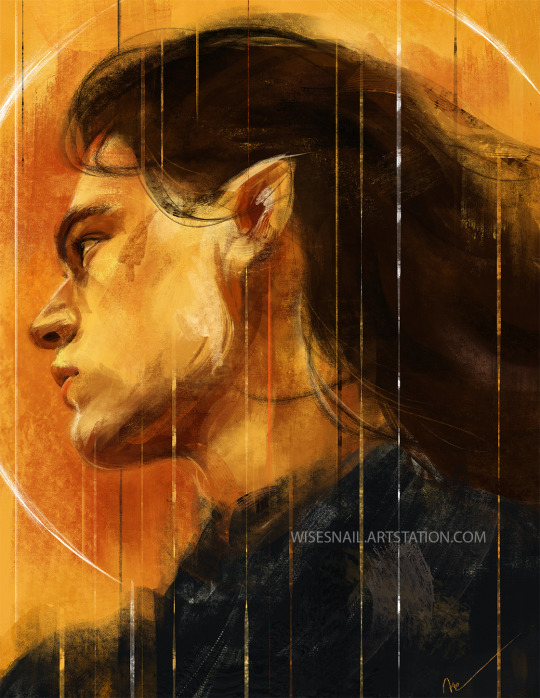
Yes, yes, if I were a Gondolindrim I would be super pissed at him… But I'm not, so I can be controversial and say that I kin. da love for Maeglin T_T
Quick speed paint of the Lord of the Mole <;
Prints and other stuff on my RedBubble and Threadless
374 notes
·
View notes
Text

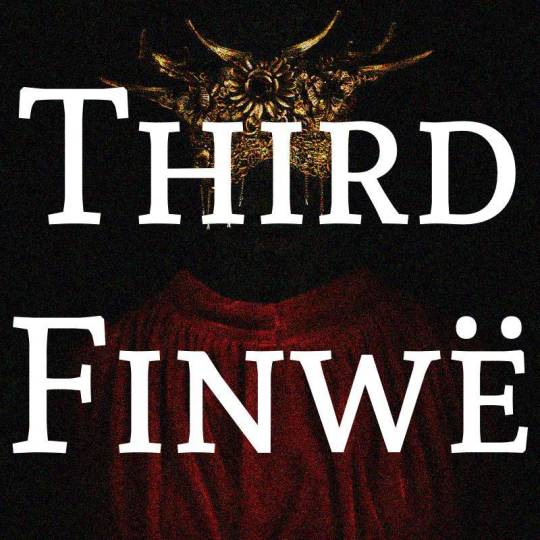
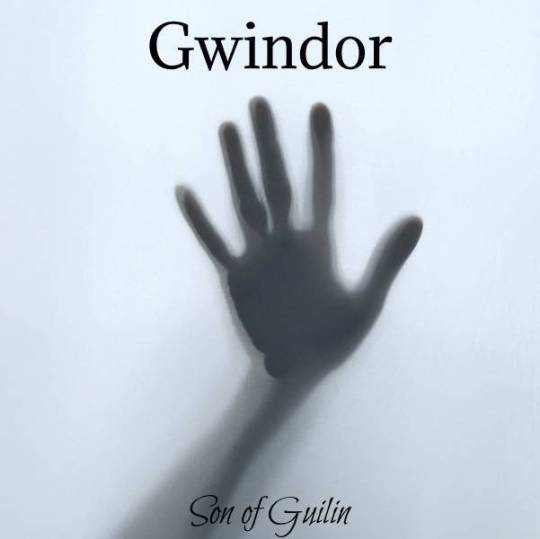

Tolkien fanmixes Pt.1
Feanor: Youtube | Spotify (individual post)
Maedhros: Youtube | Spotify (individual post)
Gwindor: Youtube | Spotify (individual post)
Fingolfin: Youtube | Spotify (individual post)
13 notes
·
View notes
Text
tidbit tuesday
I was tagged by @thelordofgifs to post a snippet of something I'm working on - this is from something I hope to finish for Russingon week if the stars align.
Maedhros thought of Fëanor, of his fëa ashen on the wind. In the short span between his father’s death and his own capture Maedhros had not had time to muse on questions of philosophy, and hung on Morgoth’s slag heap he had not been thus inclined. So he thought on them now, as the spark within him caught and burned.
He wondered if all fëar licked so at the body’s walls. Fëanor’s spirit had seemed so eager to go, bounding out as Maedhros knelt over him on the ground. There had been great madness in the wake of the Balrog. Celebrimbor had been there, and Maedhros remembered thinking he should not see his grandfather thus, not as Maedhros had seen Finwë with his brains ground into the mud. He had flung his arms out wide to ward them all off, his brothers protesting and attempting to shove him aside.
They had all been greedy in those final moments: for a look, for a word, for something to make sense of. In the end Maedhros did not remember why they swore the oath again, if Fëanor truly bade them do so or if they only imagined he had. Perhaps he had muttered some nonsense at the last, and Maedhros’ grasping mind had shaped that into the familiar words, the only fitting elegy for the second king to die.
He had heard the rumors about his own fëa, also. Maedhros the Tall, Maedhros the Terrible, Maedhros who burned as one brought back from the dead, more fey even than his father. In breaking him upon the cliffs, they said, Morgoth made a crucible. Maedhros did not know if this was true. The years of peace drew out, and he was long untested. He had not slain orcs in some time. He had not slain elves in far longer, though he understood how the latter tended to stain.
I will tag @meadowlarkx and @polutrope and anyone else who feels like sharing!
20 notes
·
View notes

